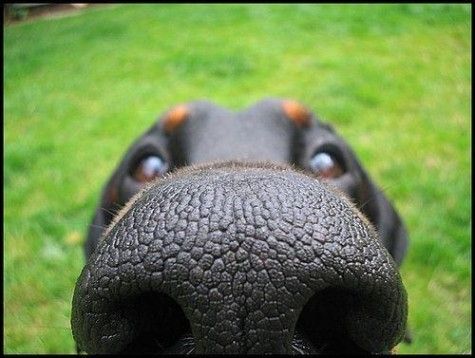Trained Dogs to Find Water Contamination
Published on by Water Network Research, Official research team of The Water Network in Government
A company that has trained dogs to recognize the smell of human fecal bacteria has been sniffing out sources of water pollution nationwide, discovering broken sewer pipes, leaking septic tanks and illegal sewage discharges.
 Conventional water sampling tests take 24 hours at a laboratory, and often must be duplicated to ensure their accuracy.
Conventional water sampling tests take 24 hours at a laboratory, and often must be duplicated to ensure their accuracy.
Testing of sewer systems with dye or smoke takes days and is costly. But the dogs give an instant yes-or-no indication as to whether a particular location is contaminated with the bacteria.
Human fecal contamination is a serious environmental problem that can cause illnesses including intestinal problems; hepatitis; respiratory infections; and ear, nose, and throat problems.
Contamination from the E. coli bacterium, naturally occurring in human intestines, becomes dangerous if it is present in the environment in high enough concentrations. It is the leading cause of beach and waterway closures in the U.S., and tracking down the source of such pollution is a high priority for local and state governments.
One recent day, two of the company's dogs sniffed the edges of a pond near the New Jersey shore in Fair Haven, where polluted runoff was helping to choke the pond with thick algae that covered it with a green scum.
Environmental groups including Clean Ocean Action, along with the local government, hired the company to determine whether any sewage was making its way into the pond, which feeds into the nearby Navesink River, a waterway having its own problems with bacterial contamination.
The dogs are trained to ignore fecal bacteria from animals, and customers often try to trick them (unsuccessfully) during evaluations of the company. Waterway contamination from bird, wild animal and pet waste is also a significant source of water pollution.
Rick Haley, a water quality analyst with the Skagit County, Washington, public works department, was among them. He had the dogs sniff samples of animal waste, all of which they ignored until they got to one containing human bacteria, which they flagged.
Once the dogs went to work there, they helped authorities find 15 to 20 leaking septic tanks that were polluting waterways, including one in Bayview State Park that routinely had to be closed to swimming when bacteria levels got high.
After the dogs found an upstream source of sewage from a faulty septic tank, repairs were made, and the beach saw much fewer closures, Haley said.
The company has done work in 15 states, with bases in Otisfield; Lansing, Michigan; and Santa Rosa, California.
Source: CVT News
Media
Taxonomy
- Bacteria
- Sewage
- Water Supply
- Leakage
- Contaminants
- Contaminants